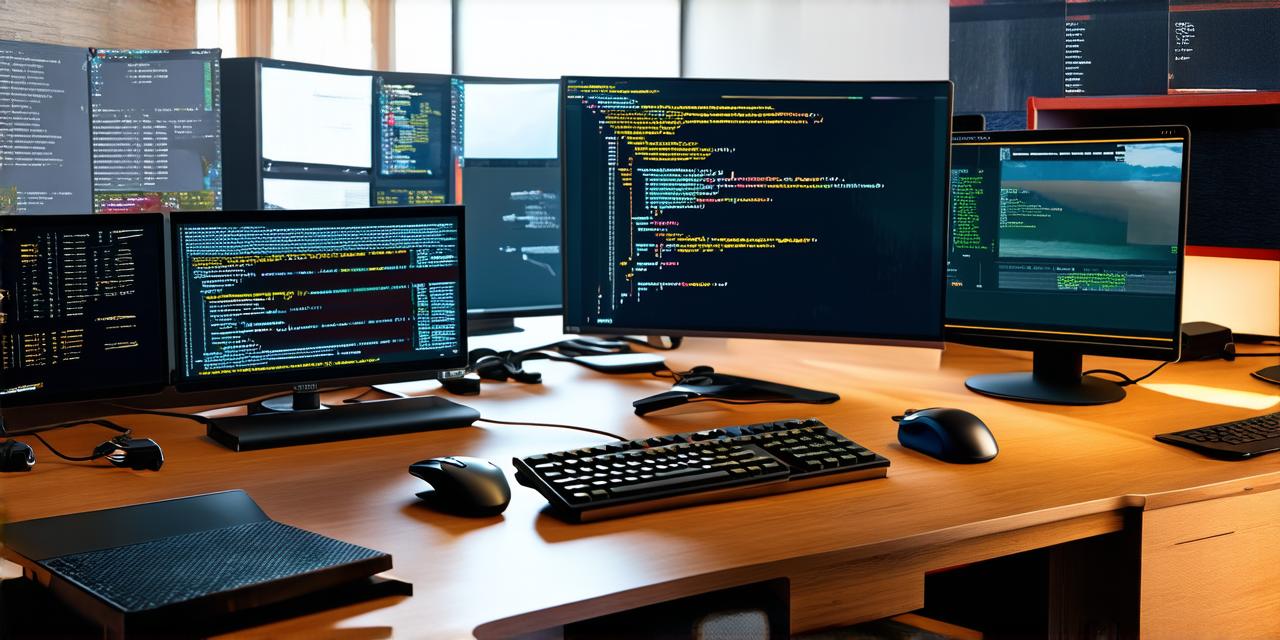Introduction
Game development is a lucrative and exciting field that requires creativity, technical skills, and a passion for fun. With the rise of mobile gaming and other interactive platforms, game development has become more accessible than ever before. If you’re interested in learning how to create games, Python is an excellent choice as a programming language. It is easy to learn, versatile, and widely used in game development. In this guide, we will explore the ins and outs of using Python for game development, including its advantages and disadvantages, best practices, and case studies.
Advantages of Using Python for Game Development
Python is a popular programming language that offers several advantages when it comes to game development. Some of these benefits include:
- Easy to Learn: Python is known for being one of the easiest programming languages to learn. Its syntax is straightforward, and its code is easy to read and understand. This makes it an excellent choice for beginners who are just starting out in game development.
- Versatile: Python can be used for a variety of tasks, including game development. It has several libraries and frameworks that make it easier to develop games quickly and efficiently. Some popular Python libraries for game development include Pygame, Kivy, and PyOpenGL.
- Widely Used: Python is widely used in various industries, including game development. This means that there is a large community of developers who use Python, which can be helpful when it comes to finding resources, tutorials, and support.
- Cross-Platform Compatibility: Python games can run on different platforms, including Windows, Mac, Linux, Android, and iOS. This makes it easier to reach a wider audience and increase the game’s popularity.
- Rapid Development: Python has several features that make game development faster and more efficient. For example, its dynamic typing system eliminates the need for type declarations, which can save time when developing complex games. Additionally, Python’s built-in support for parallel processing allows for faster rendering of graphics and other tasks.
Disadvantages of Using Python for Game Development
Despite its advantages, Python also has some disadvantages that you should be aware of when it comes to game development. Some of these drawbacks include:
- Slow Execution Speed: Python is an interpreted language, which means that it runs slower than compiled languages like C++ or Java. This can be a problem when developing games that require fast execution speeds, such as real-time strategy or first-person shooter games.
- Limited 3D Graphics Capabilities: While Python has several libraries for creating 2D graphics, it is not as powerful as languages like C++ or OpenGL for creating 3D graphics. This can be a limitation when developing 3D games that require advanced graphics capabilities.
- Memory Usage: Python’s dynamic typing system can cause memory usage issues when developing large games with many objects and variables. This can lead to slower performance and reduced frame rates.
- Limited Community Support: While Python has a large community of developers, it is not as widely used in game development as languages like C++ or Unity. This means that there may be limited resources and support available for developing games with Python.
Best Practices for Game Development with Python
When developing games with Python, there are several best practices that you should follow to ensure success. These include:
- Use Libraries and Frameworks: Python has several libraries and frameworks that make game development easier and faster. Some popular libraries for game development with Python include Pygame, Kivy, and PyOpenGL. These libraries provide pre-built components and tools that can be used to create games quickly and efficiently.
- Optimize Performance: As mentioned earlier, Python’s execution speed can be a limitation when developing games. To optimize performance, you should consider using techniques like caching, reducing memory usage, and parallel processing. Additionally, you may want to consider using a compiled language like C++ for tasks that require fast execution speeds.
- Test and Debug: Game development is a complex process, and bugs and errors are common. It’s essential to thoroughly test your game and debug any issues that arise. You can use Python’s built-in debugging tools or third-party tools like PyCharm or Visual Studio Code to help with testing and debugging.



